#papyris
Text
THEY FUCKING DID IT!!!!!!!!!!!!

#tagamemnon#villa of the papyri#it is. seemingly more philodemus#but like. who cares about philodemus they have a method of digitally unwrapping + reading 2000 year old carbonised papyri#holy SHIT!!!!!!!!!!!!!!!!!!!!!!!!#beeps
14K notes
·
View notes
Text
what if we went on a date to the museum and you allowed me to info dump about ancient egypt for four hours? what then?
668 notes
·
View notes
Text
Found a new Greek word: ἀνειδωλόπληκτος (anedoloplektos). It means "not afflicted by ghosts." here, i'll use it in a sentence.
"DNI unless you're anedoloplektos"
#i have NO idea what the text LSJ cites for usage is#it's PMag???#NEVER MIND tags cancelled it's magical papyri#i think.
1K notes
·
View notes
Text
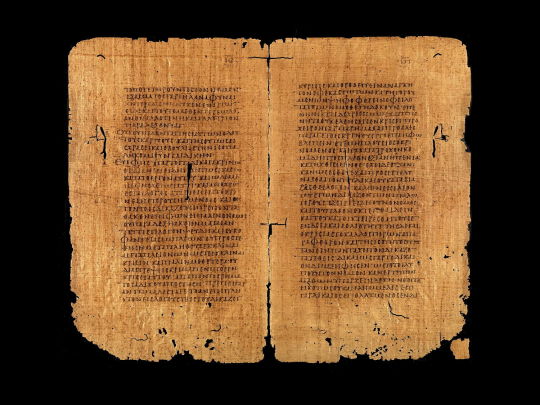
~ Literary Papyri: Cyril of Alexandria, On Adoration and Worship in Spirit and in Truth.
Date: A.D. 550-614
Period: Byzantine
Place of origin: El-Deir (Fayoum, Egypt) (?)
#history#museum#archeology#archaeology#papyri#byzantium#byzantine#Cyril of Alexandria#Egyptian#Egypt#a.d. 550 b.c.#a.d. 614
549 notes
·
View notes
Text

The Herculaneum papyri, ancient scrolls housed in the library of a private villa near Pompeii, were buried and carbonized by the eruption of Vesuvius in 79 AD. For almost 2,000 years, this lone surviving library from antiquity was buried underground under 20 meters of volcanic mud. In the 1700s, they were excavated, and while they were in some ways preserved by the eruption, they were so fragile that they would turn to dust if mishandled. How do you read a scroll you can’t open? For hundreds of years, this question went unanswered.
That is until Luke Farritor, a contestant of the Vesuvius Challenge, became the first person in two millennia to see an entire word from within an unopened scroll this August.
Shortly after that, another contestant, Youssef Nader, independently discovered the same word in the same area, with even clearer results — winning the second place prize of $10,000.
Indeed, the word held up to scrutiny. “Porphyras” is an exciting word: it means “purple” and is quite rare in ancient texts.
One papyrologist noted: “The sequence πορφυ̣ρ̣ας̣ may be πορφύ̣ρ̣ας̣ (noun, purple dye or cloths of purple) or πορφυ̣ρ̣ᾶς̣(adjective, purple). Due to the lack of context it is not possible to exclude πορφύ̣ρ̣α ς̣κ[ or πορφυ̣ρ̣ᾶ ς̣κ[.”
This is so cool, worth the read if you click through!
394 notes
·
View notes
Text
Actual ancient Graeco-Egyptian spells for having fun at a Symposium (from PGM VII):
To make bronzewear look like it’s made of gold: Mix native sulfur with chalky soil and wipe it off.
To make an egg become like an apple: Boil the egg and smear it with a mixture of egg-yolk and [red] wine.
To make the chef unable to light the burner: Set a houseleek plant on his stove.
To make the gladiators painted [on the cups] “fight”: Smoke some “hare’s head” underneath them.
To make cold food burn the banqueter: Soak a quill in hot water and give it to him to wash with.
To let those who have difficult intermingling perform well: Give gum mixed with wine and honey to be smeared on the face.
To be able to drink a lot and not get drunk: Eat a baked pig’s lung.
To be able to copulate a lot: Grind up fifty tiny pinecones with 2 ozs. of sweet wine and two pepper grains and drink it.
To get an erection when you want: Grind up pepper with some honey and coat your “thing”.
269 notes
·
View notes
Text

Style shift pt 2: everyone else
ft @decafguy00 ‘s Twig, @owl-bones ‘s Boss, @bonetrousledbones ‘s Edge, @alsojnpie ‘s Horrortale Papyrus, @save-star ‘s Duke, and a silly Undersell Papyrus for @phenom-lemon
#💗💗💗💗💗💗#<- throwing those like shuriken#initially the plan was for them all to be uf Papyri but sometimes plans change and sometimes not all of your mutuals have some version of#uf papyrus and that’s okay <3#every healthy ecosystem needs diversity#anyway#there is ONE MORE missing piece but I will get to it after I rest my hand 👍#updating the other one w/ a bg now too bc I learned a trick that makes it 9 billion times easier yaaay#snow and hail#uf papyrus monday#the shift is that this is my style. btw. in case that wasn’t clear bc I realize now that doesn’t seem very clear#undersell#other peoples ocs#sort of
102 notes
·
View notes
Text
Hellenic Gods Fact Sheets and Hymns: Hecate
Other Names: Trivia, Brimo
Epithets: Anassa eneroi (queen of those below), Aidonaia (lady of the Underworld), Amibousa (she who changes), Atalus (tender, delicate), Borborophorba (she who feeds on filth), Brimo (angry, terrifying), Despoina (mistress), Eileithyia (of childbirth), Enodia (of the roads), Epaine (dread), Euplokamos (bright-tressed), Khthonia (of the Underworld), Kleidouchos (keeper of the keys), Kourotrophos (protector of children), Krokopelos (saffron-robed), Liparokredemnos (bright-coiffed), Nycteria (nocturnal; of the night), Nyctipolos (night-wandering), Perseis (destroyer/ daughter of Perses), Phosphoros (light bearer), Propolos (guide), Propylaia (the one before the gate), Scylacagetis (leader of dogs), Soteira (savior), Trikephalos (three-headed/of the crossroads), Trimorphos (three-formed), Trioditis (of the three ways), Trivia (of the three ways).
Domains: Witchcraft, magic, necromancy, ghosts, nightmares, death, initiation, the crossroads, gateways, passage between worlds, and the night.
Appearance: [My UPG] A tall (over 6’) woman, neither young nor old, with waist-length black hair, pale skin, prominent cheekbones, a heavy jaw, and intense green eyes. She is usually dressed in black folds molded into a simple dress or robes. She has a severe expression and an intimidating presence. She speaks with a low voice.
Sacred Days and Festivals: Eleusinia (22 Metageitnion). Nemoralia (August 13th-15th). Deipnon, last day of each (lunar) month.
Symbols/Attributes: Torches, keys, daggers, strophalos (iynx wheel)
Sacred Animals: Dog, polecat, serpent, horse, frog.
Sacred Plants: Yew, cypress, garlic, willow, hazel, black poplar, aconite, belladonna, dittany, mandrake, hemlock, asphodel
Elemental Affinity: Darkness, light, fire
Planet: Moon
Colors: Black, saffron, silver.
Crystals: Black onyx, hematite, obsidian, black tourmaline, moonstone, smoky quartz, agate, amethyst.
Incense: Myrrh, almond, cypress, camphor, saffron, mugwort, pomegranate.
Tarot Cards: The High Priestess, The Moon, Death
Retinue: Empousai, ghosts of the dead, dogs, Lampades (torch-bearing underworld nymphs)
Associated People: Witches (and other magic-users), the dead
Offerings: Bread, eggs, honey, garlic, menstrual blood, graveyard dirt.
Syncretized With: Artemis, Diana, Persephone, Eileithyia, Selene, Nephthys, Ereshkigal, Nicnevin, Heqet
Hymns to Hecate
Orphic Hymn to Hecate
Hekate Enodia, Trivia, lovely dame,
Of earthly, watery, and celestial frame,
Sepulchral, in a saffron veil arrayed,
Pleased with dark ghosts that wander through the shade;
Daughter of Perses, solitary goddess, hail!
The world’s key-bearer, never doomed to fail;
In stags rejoicing, huntress, nightly seen,
And drawn by bulls, unconquerable, monstrous queen;
Leader, Nymphe, nurse, on mountains wandering,
Hear the suppliants who with holy rites thy power revere,
And to the herdsman with a favoring mind draw near.
Hecate’s Hymn to Herself
I come, a virgin of varied forms,
wandering through the heavens, bull-faced,
three-headed, ruthless, with golden arrows;
chaste Phoebe bringing light to mortals, Eileithyia;
bearing the three synthemata [sacred signs] of a triple nature.
In the Aether I appear in fiery forms
and in the air I sit in a silver chariot,
Earth reins in my black brood of puppies.
(From Porphyry’s lost commentary on the Chaldean Oracles, preserved by Eusebius of Caesaria in Praeparatio Evangelica. According to Porphyry, this hymn was composed by Hecate herself.)
Magical Invocation to Hecate
Approach, you of the netherworld, of earth, of heaven, Bombo!
You by the wayside, at the crossroads, light-bearer, night-wanderer,
Enemy of light, friend and companion of night,
Rejoicing in the howl of dogs and in crimson gore,
Lurking among the corpses and the tombs of lifeless dust,
Lusting for blood, bringing terror to mortals,
Grim one, Ogress [Mormo], Moon – you of many forms,
May you come gracious to our sacrificial rites!
(Preserved in Refutation to All Heresies by Hippolytus)
Invocation to Hecate from PGM IV 2708-84
Come, giant Hecate, Dione’s guard,
O Persia [daughter of Perses], Baubo Phroune, dart-shooter,
Unconquered Lydian, the one untamed,
Sired nobly, torch-bearing, guide, who bends down
Proud necks, Kore, hear, you who’ve parted / gates
Of steel unbreakable. O Artemis,
Who, too, were once protectress, mighty one,
Mistress, who burst forth from the earth, dog-leader,
All-tamer, crossroad goddess, triple-headed,
Bringer of light, august / virgin, I call you
Fawn-slayer, crafty, O infernal one,
And many-formed. Come, Hekate, goddess
Of three ways, who with your fire-breathing phantoms
Have been allotted dreaded roads and harsh /
Enchantments, Hekate I call you
[…]
O Hekate of many names,
O Virgin, Kore, Goddess, come, I ask,
O guard and shelter of the threshing floor
Persephone, O triple-headed goddess,
Who walk on fire, cow-eyed BOUORPHORBE
PANPHORBA PHORBARA AKITOPHI
ERESHKIGAL / NEBOUTOSOUALETH
Beside the doors, PYPYLEDEDEZO
And gate-breaker; Come Hekate, of firey
Counsel, I call you to my sacred chants.
#hecate#hekate#greek gods#greek goddess#hellenic paganism#hellenic polytheism#helpol#witchcraft#witchblr#hecate worship#fact sheets#orphic hymns#greek magical papyri
297 notes
·
View notes
Text
The great libraries of the ancient classical world are legendary. From Alexandria to Rome to Athens, Baghdad, and Constantinople, these vast archives of times gone by are said to have contained stacks of texts on religion, politics, philosophy, poetry, literature, and the sciences.
Only one's collection has survived to the present day, and we can now start reading its contents.
Continue Reading.
#Science#History#Paleontology#Herculaneum Papyri#Scrolls#Vesuvius Challenge#AI#Artifical Intelligence
90 notes
·
View notes
Text
What if they decoded one of the Herculaneum scrolls and it turned out to be teenage Caesar's poorly-written Greek mythology fanfiction
94 notes
·
View notes
Text
HELLOOOOOOOOOOOOOOOOOOOOOOOO
2K notes
·
View notes
Photo
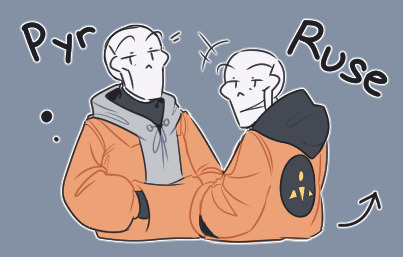

hi so i went ham with a new AU
Extra info below:
- Blue is MARGINALLY older by a few minutes. The twins dangle this above his head constantly and both get their asses kicked at the same time.
- Both twins are judges. Toriel had a blast with that one.
- Poor fluffy bottoms... Asgore was so confused when he met both of them. They each made him think he was talking to only one person named Pyruse through the door.
- There has only been ONE successful genocide run. Chara and Frisk had a helluva time. Never again. Both twins remember this (and secretly, so does Blue).
- Sometimes Chara calls both of them Pa-pyruse. Like a dad figure. Frisk calls both of them idiots and other profanities that they could get away with.
- Temmie still hates everything.
- Muffet can tell the difference between the two of them pretty easily so she keeps different tabs on each one. Both have yet to pay her back in gold, though favors like bringing in more customers and getting her resources keep her happy.
- Ghost!Mettaton met Pyr on the internet and became friends over the internet. Ruse met him through Pyr talking about a ghost on the internet. He’s a lot happier and a lot less lonely after Napstaton/blook met Alphys.
- Both brothers are chill with Napstaton. They like his music, sometimes humming it while Blue is running the robot’s songs in the background.
- Alphys complains to Blue how she wants to spar with the twins. They keep saying no :(
- There’s twice as many explosions in Undyne’s lab, and a sudden increase in robots walking around Hotland. No one’s really complaining, as the robots pretty much take over the guards’ patrol.
- Grillby has a secret ketchup stash for Blue when he shows up because of his brothers’ antics.
#queque cachoo#literally just pa-pyre-rus#soooo#i head cannon as both bros being chill and regular swap papyruses#BUT!!#Pyr is leaning towards swapfell personality in terms of quieter and more possessive#and Rus being a lil shit leaning towards fellswap and loving messing with people#but both are at the very core still regular swap papyri#god i had such a nice time doing this#undertale#underswap#undertaleAU#sans#papyrus#pyr#ruse#blue#arci doodles#swap!twins AU
654 notes
·
View notes
Text

#tagamemnon#classics#papryi#Pompeii#ok but this is actually a fucking amazing creation#we now have technology that allows us to read papyri via the difference in ink to papryrus weight on rolled up and burnt papyri#like#holy shit#we've already found a not seen before Philodemus#Imagine what else we could have#jas does tumblr
72 notes
·
View notes
Text

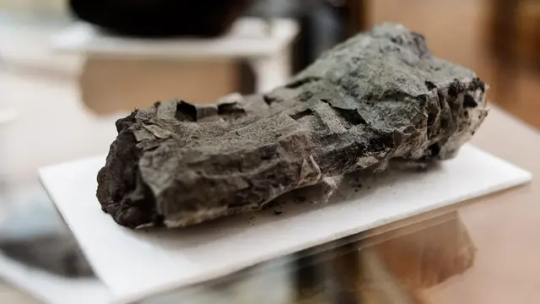
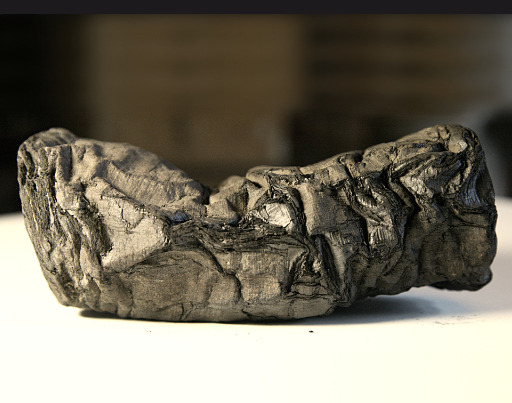
Three Students Just Deciphered the First Passages of a 2,000-Year-Old Scroll Burned in Vesuvius’ Eruption
A Roman scroll, partially preserved when it was buried in the eruption of Mount Vesuvius in A.D. 79, has been virtually unwrapped and decoded using artificial intelligence.
The feat was achieved by three contestants in the Vesuvius Challenge, a competition launched in March 2023 in which people around the world raced to read the ancient Herculaneum papyri.
Papyrologists working with the Vesuvius Challenge believe the scroll contains “never-before-seen text from antiquity,” and the text in question is a piece of Epicurean philosophy on the subject of pleasure. The winning submission shows ancient Greek letters on a large patch of scroll, and the author seems to be discussing the question: are things that are scarce more pleasurable as a result?
The author, whose identity is unconfirmed, doesn’t think so: “As too in the case of food, we do not right away believe things that are scarce to be absolutely more pleasant than those which are abundant,” one passage from the scroll reads.
The three members of the winning team had previously individually made significant contributions to the competition. Luke Farritor, a computer science student at University of Nebraska-Lincoln, and Youssef Nader, a machine learning Ph.D. student at Freie University in Berlin, had been two of the first contestants to detect a smaller number of letters, winning $40,000 and $10,000 respectively. Julian Schilliger, a robotics student at ETH Zürich, developed a tool that began to automatically segment the scrolls. They will share the $700,000 grand prize.
Nat Friedman, a tech investor and executive, and one of the challenge’s organizers, recently printed out the winning submission. “All this has been in this dreamlike digital world in my imagination before," Friedman says. "Seeing it on paper, rolling it up, it just made it so tangible.”
There’s a lot more to discover. The scroll partially decoded by the winning submission was one of 800 discovered in a southern Italian villa that was first uncovered in 1750. The combined efforts of the competitors and organizers so far have resulted in around 5% of one scroll being read.
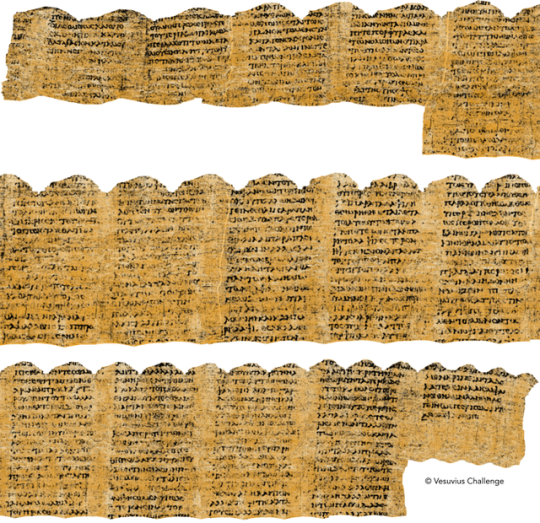
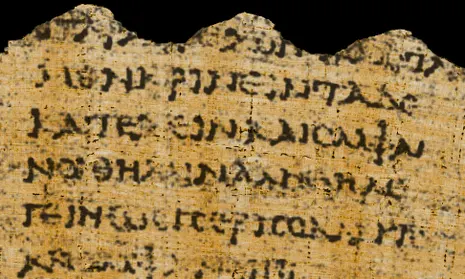
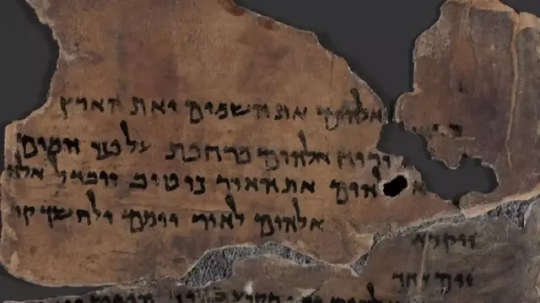

The final scramble to read the scrolls
Since the Vesuvius Challenge launched nearly a year ago, participants had both cooperated and competed, sharing their latest techniques with each other and posting pictures of their progress. But as the race for the grand prize intensified, the Discord, a social media platform where the participants shared information, went dark, says Friedman.
Of the eighteen submissions for the grand prize, most of them were received on the last day of the contest, Dec. 31, and three were sent in the final ten minutes, according to Friedman. Friedman recalls he was at home with his family around Christmas, decorating for the holiday while compulsively refreshing his phone, when the winning submission came in. “I ran into my little office at home and popped it open,” he says. “I was like, ‘Wow, this is really magnificent.’”
In accordance with the criteria set in March 2023, the winning submission contains four passages of 140 characters each, with at least 85% of the characters in each of those passages recoverable by professional papyrologists. It also contains a further 11 columns of text.
It isn’t known who authored the ancient scroll, but experts have developed theories. “Is the author Epicurus' follower, the philosopher and poet Philodemus, the teacher of Vergil? It seems very likely,” writes Richard Janko, professor of classical studies at the University of Michigan. “Is he writing about the effect of music on the hearer, and comparing it to other pleasures like those of food and drink? Quite probably.” Robert Fowler, a professor of Greek at the University of Bristol, also believes the author to be Philodemus. “Like other Epicureans, he valued pleasure above all - but pleasure rightly understood, not mere indulgence,” Fowler writes of the philosopher.
In the final section of the scroll, the author appears to criticize his intellectual adversaries, who “have nothing to say about pleasure, either in general or in particular, when it is a question of definition.”
“I can't help but read it as a 2000 year old blog post, arguing with another poster,” says Friedman. “It's ancient Substack, and people are beefing with each other, and I think that's just amazing.”
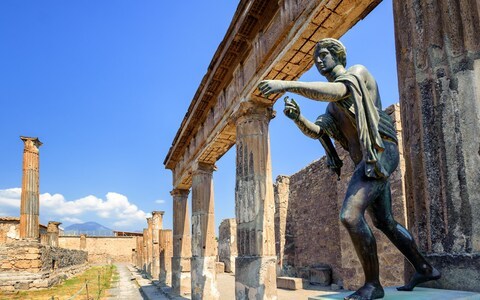
What comes next
The Vesuvius Challenge has issued a new grand prize for 2024 that will allow the AI-enhanced decoding to move at a faster pace.
The competitors largely have been developing algorithms for automatic letter detection—using AI to see traces of ink on segments of virtually unrolled scrolls. Aside from letter detection, the other main challenge associated with reading the scrolls is segmentation—separating the layers and virtually unrolling the scrolls. So far, this process has been highly manual; the Vesuvius Challenge employed three full-time segmenters. In order to ensure that they’d have segmented enough of the scroll for someone to win the grand prize, Friedman bought the team new monitors and computers to boost their productivity. The challenge for 2024 is to automate the segmentation process.
Friedman admits that he has had other tempting offers of new quests to pursue. Over the last year, he says his inbox has been filled with Robinson Crusoe-esque proposals, from people alerting him to lost shipwrecks and ancient cities, undecoded languages, and strange glyphs on the sides of mountains.
But he can’t walk away. He wants to help read all of the 800 scrolls already discovered in the villa. And some archeologists believe there is a main library containing tens of thousands of scrolls, still waiting to be excavated.
To expedite the excavation, Friedman has obtained the mobile number of the Italian civil servant responsible for the villa, whom he has texted, twice. “My hope is that I won't have to go and dig it out myself,” says Friedman. “But if that's what it comes to, I will.”
By WILL HENSHALL.
#AI reads ancient scroll buried by Vesuvius eruption#Three Students Just Deciphered the First Passages of a 2000-Year-Old Scroll Burned in Vesuvius’ Eruption#Herculaneum#Herculaneum papyri#Villa of the Papyri#Mount Vesuvius#ancient artifacts#archeology#archeolgst#history#history news#ancient history#ancient culture#ancient civilizations#roman history#roman empire#long post#long reads
75 notes
·
View notes
Text
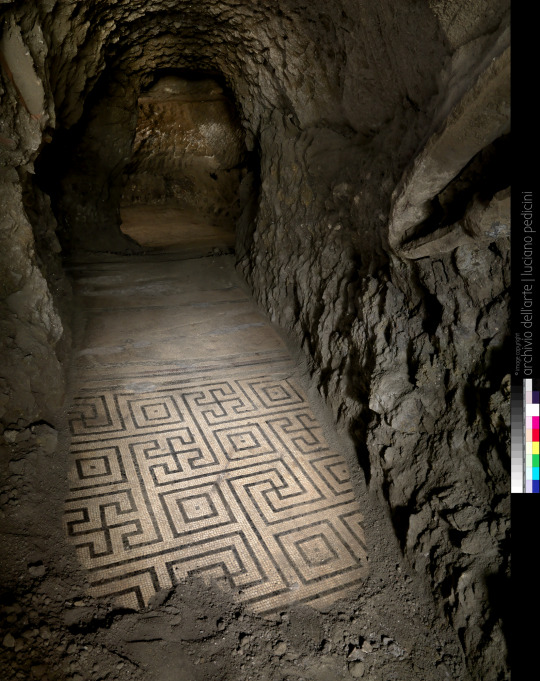
Tunneling into the Villa of the Papyri, Herculaneum, location of the only library from the ancient world whose collection has survived into the present day.
409 notes
·
View notes
Text
The Herculaneum papyri, ancient scrolls housed in the library of a private villa near Pompeii, were buried and carbonized by the eruption of Vesuvius in 79 AD. For almost 2,000 years, this lone surviving library from antiquity was buried underground under 20 meters of volcanic mud. In the 1700s, they were excavated, and while they were in some ways preserved by the eruption, they were so fragile that they would turn to dust if mishandled. How do you read a scroll you can’t open? For hundreds of years, this question went unanswered.
That is until Luke Farritor, a contestant of the Vesuvius Challenge, became the first person in two millennia to see an entire word from within an unopened scroll this August. For that, we are thrilled to award Luke a $40,000 First Letters Prize, which required contestants to find at least 10 letters in a 4 cm2 area in a scroll.
LET'S FUCKING GOOOOOOOO
Shortly after that, another contestant, Youssef Nader, independently discovered the same word in the same area, with even clearer results — winning the second place prize of $10,000.
The word is πορφύ̣ρ̣ας̣ (porphyras, meaning "purple").
141 notes
·
View notes